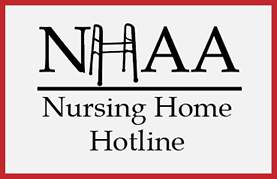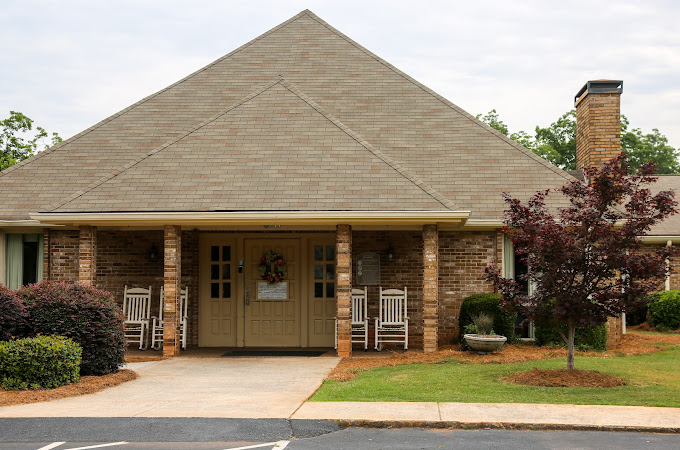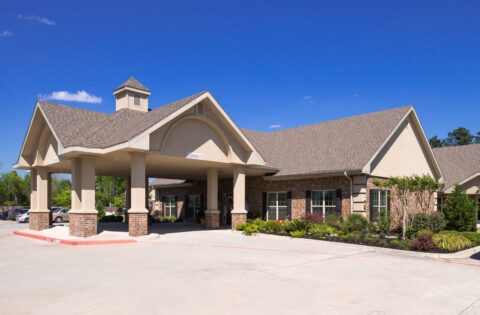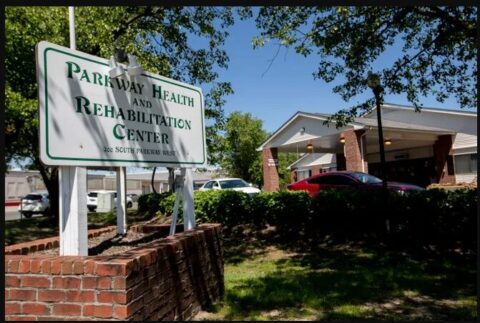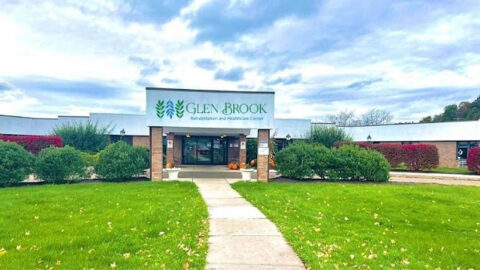In The News:
Based on observations, interviews, record review, and facility policy review, it was determined that the facility failed to provide necessary care and services to maintain or improve a resident’s ability to carry out activities of daily living (ADLs) for three (Resident #17, Resident #41, and Resident #56) of six residents reviewed.
Specifically, Resident #17, Resident #41, and Resident #56 did not receive restorative care services as recommended by the therapy department to maintain mobility.
Findings included:
Review of a facility policy titled, Skilled Inpatient Services – Restorative, dated 12/04/2021, specified the intent of the policy was, To provide nursing interventions that promote the patient’s ability to adapt and adjust to living as independently and as safely as possible. When clinically appropriate, these interventions may be captured in a formalized restorative nursing care plan overseen by Restorative Nursing Supervisor(s). The policy further indicated, The plan of care will be outlined in EMR [electronic medical record] software and will be followed by staff trained in restorative care and the restorative nursing supervisor shall complete a summary evaluation of the patient’s progress monthly.
1. A review of a Face Sheet indicated the facility admitted Resident #17 with diagnoses that included a displaced fracture of the lateral left tibia, hemarthrosis (bleeding into a joint) of the left knee, pain in the left knee, and generalized muscle weakness.
The quarterly Minimum Data Set (MDS), dated [DATE], revealed Resident #17 had a Brief Interview for Mental Status (BIMS) score of 15, which indicated the resident was cognitively intact.
The MDS further indicated the resident required extensive assistance of one person for bed mobility, transfers, dressing, toilet use, and personal hygiene. Resident #17 required limited assistance to walk in the room and corridor. The MDS also indicated the resident was not steady when walking.
Review of Resident #17’s Care Plan, reviewed on 05/30/2022, revealed the resident had limited mobility related to a history of falls and impaired balance. Interventions included to refer to therapy as indicated and assist with activities of daily living (ADLs) as needed.
Review of Resident #17’s Restorative Care Plan, initiated on 07/28/2022 indicated a plan for walking with a frequency of once daily, 6 days per week. The intervention was to assist the patient with performance of walking using a rolling walker up to 50 feet.
Review of Resident #17’s Occupational Therapy Daily Note, dated 09/21/2022, revealed the resident was discharged from occupational therapy (OT) due to reaching the resident’s maximum potential and the resident was to start with a restorative nursing program on 09/22/2022 in order to maintain the patients functional discharge status.
During an interview on 12/27/2022 at 9:31 AM, Resident #17 stated there was not sufficient staff to conduct the restorative services that were started when therapy ended. The resident stated there was a goal for them to get stronger and potentially return home, and this would involve being able to walk. Resident #17 stated the staff only came sometimes to walk them.
On 12/27/2022 at 3:24 PM, Resident #17 was observed seated in a wheelchair beside the bed.
During an interview on 12/29/2022 at 9:05 AM, Resident #17 stated the staff had not offered the restorative services for at least three weeks. The resident stated the last time a staff member walked with them was Certified Nursing Assistant (CNA) #10 and that was almost three weeks ago.
Throughout the survey from 12/27/2022 through 12/30/2022, Resident #17 was not observed up walking with staff members.
In an interview on 12/28/2022 at 2:17 PM the Director of Rehabilitation stated during discharge planning the therapy department determined whether a resident would benefit from the restorative program. If determined appropriate, the plan would be provided to the restorative nurse to initiate the program once the resident was discharged from therapy. The Director of Rehabilitation stated the therapy department would help with training the staff and then the restorative program nurse would manage the service. The Director of Rehabilitation stated Resident #17 was placed on the restorative program to maintain strength. The Director of Rehabilitation stated if restorative nursing services were not being provided the impact would be a decline in function for the resident.
In an interview on 12/28/2022 at 2:45 PM CNA #10 stated she filled in to do restorative care when CNA #5 was not at the facility. CNA #10 further stated she had only provided restorative care to Resident #17 one time and that was about three weeks prior. CNA #10 stated restorative care was not being provided as there was not enough staff.
During an interview on 12/28/2022 at 2:48 PM the Assistant Director of Nursing (ADON) stated she oversaw the restorative program and that there were two CNAs who were considered the restorative aides, CNA #10, and CNA #5. The ADON stated there were times everyone had to do their own restorative. The ADON stated she verified the restorative care was being provided by seeing residents being walked. The ADON also stated she documented all restorative care and wrote a note if the residents refused. The ADON stated Resident #17 participated sometimes but often refused and although the resident had stated the staff were not assisting with walking, they were doing range of motion which was counted as the restorative care. The ADON was unable to provide any documented evidence of Resident #17 refusing to be walked as outlined in the plan of care.
2. A review of a Face Sheet indicated the facility admitted Resident #41 with diagnoses that included diabetes with diabetic neuropathic arthropathy (disease of a joint), morbid obesity, and below the knee amputation of the left leg.
The quarterly Minimum Data Set (MDS), dated [DATE], revealed Resident #41 had a Brief
Interview for Mental Status (BIMS) score of 15, which indicated the resident was cognitively intact.
The resident required extensive assistance of one person for bed mobility, dressing, toilet use, and personal hygiene. The MDS indicated Resident #41 did not walk.
Review of Resident #41’s Care Plan, reviewed on 11/21/2022, revealed the resident had limited mobility due to a left below the knee amputation. The goal was for the resident to maintain or improve physical function in mobility. The interventions included to assist with activities of daily living (ADLs) as needed.
Review of Resident #41’s Occupational Therapy Daily Note, dated 09/09/2022, revealed the resident was evaluated to determine the appropriate restorative nursing program (RNP). The plan included wheelchair mobility and transfers.
Review of Resident #41’s Physical Therapy Discharge Summary, dated 09/12/2022, revealed a functional mobility program (FMP) was established for the resident that included range of motion (ROM).
Review of Resident #41’s Nursing Restorative Care Program documentation revealed the goal for the resident was to maintain/improve adequate active range of motion of full body to allow daily participation in mobility and other functional activities. The documentation further indicated the program was to be provided once daily, six days per week.
Resident #41 was observed on 12/27/2022 at 9:00 AM; 12/27/2022 at 12:30 PM; 12/27/2022 at 3:29 PM; 12/28/2022 at 8:15 AM and 12/28/2022 at 11:45 AM. Resident #41 was not observed during any of these dates and times up out of the bed.
During an interview on 12/28/2022 at 11:45 AM Resident #41 stated they were placed on a restorative program for ROM and self-propelling the wheelchair. The resident further stated an aide would get the resident to move their arms around and straighten their leg every couple of days.
Resident #41 stated it did not occur every day but several times a week. Resident #41 further stated that the staff had not helped them get out of bed and into a wheelchair for a number of weeks. The resident stated they would get up in the past and self-propel to visit a relative in another room but now that relative comes to Resident #41’s room so the resident stays in bed.
3. A review of a Face Sheet indicated the facility admitted Resident #56 with diagnoses that included diabetes, chronic respiratory failure, difficulty in walking, and muscle weakness.
The significant change Minimum Data Set (MDS), dated [DATE], revealed Resident #56 had a Brief Interview for Mental Status (BIMS) score of 15, which indicated the resident was cognitively intact. The MDS indicated the resident required extensive assistance of one person for bed mobility and dressing, and the resident was dependent on one to two people for transfers, toilet use, and personal hygiene. The MDS further indicated Resident #56 did not walk.
Review of Resident #56’s Care Plan, reviewed on 12/21/2022, revealed the resident had limited mobility related to neuropathy and shortness of breath. The goal was for the resident to maintain or improve physical function in mobility. The interventions included to assist with activities of daily living (ADLs) as needed.
Review of Resident #56’s Occupational Therapy Discharge Summary, dated 10/18/2022, revealed a
functional mobility program was established for the resident that included exercise provided through the facility’s skilled nursing facility restorative program.
Review of Resident #56’s Nursing Restorative Care Program documentation revealed the goal was for the resident to be able to tolerate range of motion (ROM) exercises to maintain joint mobility.
The interventions included for the resident to complete upper extremity and lower extremity ROM exercises. The documentation indicated another goal for the resident related to bed mobility for the resident to be able to sit at the edge of the bed with supervision and the intervention included to sit the patient at the edge of the bed with supervision for 10 minutes. The program documentation further indicated the exercises were to be provided once daily, five days per week.
During an interview on 12/28/2022 at 2:42 PM CNA #5, the restorative aide, stated she had not conducted any restorative care for the past two to three weeks.
In an interview on 12/28/2022 at 2:45 PM CNA #10 stated she filled in to do restorative care when CNA #5 was not at the facility. CNA #10 further stated she had not provided restorative care to Resident #56.
During an interview on 12/29/2022 at 11:50 AM, Resident #56 stated the staff had not conducted any restorative exercises with the resident. The resident stated the facility was short staffed, and the resident could not remember the last time an aide worked with assisting the resident to sit on the side of the bed.
During an interview on 12/29/2022 at 2:15 PM the Assistant Director of Nursing (ADON) stated she was unaware that the residents were not being provided daily restorative care. She stated the residents may have been getting some ROM, but she really did not know. The ADON further stated she just assumed the restorative care was being done and she was involved in too many things to be able to ask about every single person on restorative. The ADON stated that she would ask the aides if they completed their work at the end of the shift and if they reported they had, then she assumed that included the restorative care piece.
On 12/29/2022 at 3:29 PM the Administrator and Director of Nursing (DON) were interviewed regarding the concern that restorative care was not being provided. The Administrator stated it was her expectation that restorative services be conducted.
Your Experience Matters
...and we want to hear it.
NHAA is here to assist families, residents, and the community by sounding the alarm on issues like those found above. This nursing home and many others across the country are cited for abuse and neglect.
If you have or had a loved one living in this nursing home or any other nursing home where you suspect any form of abuse or neglect, contact us immediately.
We have helped many already and we can help you and your loved one as well by filing a state complaint, hiring a specialized nursing home attorney or helping you find a more suitable location for your loved one.
You can make a difference, even if your loved one has already passed away.
Please give us a call at 1-800-645-5262 or fill out our form detailing your experience.
Personal Note from NHA-Advocates
NHAA shares with all the families of loved ones who are confined to nursing homes the pain and anguish of putting them in the care of someone else. We expect our loved ones to be treated with dignity and honor in the homes we place them. We cannot emphasize enough to family members of nursing home residents; frequent visits are essential to our loved ones’ well-being and safety.
If you are struggling and upset, click here to understand your options, or contact us through our contact form or call our toll free hot line number: 1-800-645-5262.
